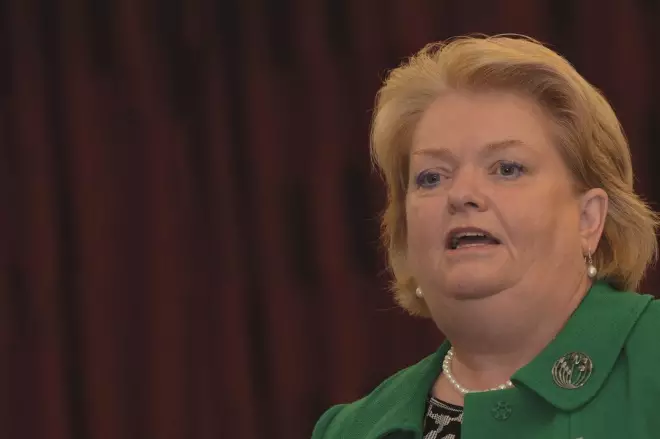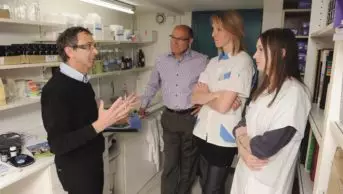
D. Callcut / Alamy Stock Photo
Procurement plays a key role in supporting the delivery of high quality patient care, while ensuring value for money is achieved. There is an increased pressure on the NHS to demonstrate efficient procurement practices, which in turn means commissioners increasingly prefer a single point of contact when considering tenders for enhanced health service contracts.
The NHS Procurement and Commercial Standards were designed to reduce administration and management costs, but these have changed the commissioning environment.
Community pharmacies must react to how public health bodies and clinical commissioning groups (CCGs) now seek one organisation to manage local services and ensure they are delivered against an agreed performance criteria. Community pharmacists are reacting to the new commissioning environment by coming together to create or form pharmacy provider companies (PPC) or by becoming members or shareholders of a PPC established by their local pharmaceutical committee (LPC).
As an unincorporated association, LPCs are not legal entities in their own right. However, they can help to create a provider company to satisfy a commissioner’s preference for a single entity when procuring services, such as smoking cessation or weight management.
A changing environment
At a time when private medical firms and social enterprises are encroaching on the enhanced health services market, a PPC provides independent and multiple pharmacies with an effective route in which to tender for services. A PPC can also help community pharmacies adapt to the growing use of electronic tendering platforms.
If a bid from a PPC is accepted, the PPC will then sub-contract the service to relevant pharmacy members (who may or may not be shareholders) to deliver. The PPC is accountable to the commissioner and provides support, such as training, to the sub contractors to ensure the service is delivered to the required specification.
Richard Hough is a pharmacy lawyer at law firm Brabners LLP in the north west of England and advises on the formation of provider companies. Hough was approached by four pharmacy-owning businesses that wanted to collaborate.

Source: Courtesy of Richard Hough
Richard Hough, pharmacy lawyer at law firm Brabners LLP in the north west of England, provides advice on the formation of provider companies.
“The pharmacies are all now shareholders in the PPC, which was set up as a specific entity to target commissioning bodies and win contracts,” says Hough, who is also a practising pharmacist. “They can now bid as one for services such as community warfarin monitoring, which would usually be offered by GPs.”
He says the company is free to bring in other pharmacies with particular areas of expertise to help win specific contracts if needed, but the shareholding is not diluted among the original owners who take all the risks.
Hough says it might not make economic or legal sense for a single pharmacy to go it alone and form a provider company (see box ‘Preparation is crucial to winning tenders’).
“The collaborative arrangement tends to work better for individual community pharmacies that might not have the correct skillset to interact with a commissioner,” he says. “With a consortium, you can also scale up a service.”
A pharmacy must be careful if it does add any risk to its core business
However, he adds that a community pharmacy must also protect itself and a PPC does offer some security.
“A pharmacy must be careful if it does add any risk to its core business,” says Hough. “If a pharmacy takes on a large health services contract it might not fully understand the associate liabilities. It is always sensible to ringfence risks within a particular corporate entity, so their primary business is protected if things do go wrong.”
There are potential risks associated with providing the warfarin monitoring service, for example.
“A pharmacy could misinterpret the data if the machine has been incorrectly calibrated and this could cause a health incident. A provider might have professional indemnity insurance, but its business’s reputation and relationship with the commissioning body would be damaged.”
Varied implementation
Some LPCs are further along the road than others when it comes to forming provider companies.
Ash Pandya, chief executive of Essex LPC, noticed four years ago how commissioners were becoming frustrated with having to deal with multiple providers. At the same time, community pharmacies were facing new competition for health services from social enterprises and provider arms of the old primary care trusts (PCTs).

Source: Mahua Das / Ash Pandya
Ash Pandya, chief executive of Essex LPC, found that many multiples did not want to be part of another limited company, so instead looked into becoming a social enterprise, but also wanted the organisation to be more commercial.
“We knew we had to act, so we looked at different models for a provider company,” says Pandya. “Many multiples did not want to be part of another limited company, so we looked into becoming a social enterprise ourselves, but we wanted the organisation to be more commercial.”
Essex LPC worked with its own lawyers to create a different corporate structure. A commercial enterprise was formed that did not require the 100 or so members to be consulted every time a decision needed to be taken. It also allowed the multiples to join without having to be shareholders.
“Basically it is a membership organisation with a limited company running the day-to-day operation,” says Pandya.
The Essex provider company called Healthy Living Partnership Ltd was eventually launched in 2015. Initially it had to team up with other provider companies and third parties to bid for enhanced health services, because it did not have three years of accounts. The first contract bids were for smoking cessation and sexual health services. It collaborated with organisations such as social enterprise organisation Provide, Colchester Hospital University NHS Foundation Trust, South Essex Partnership University NHS Foundation Trust and sexual health charities Brook and the Terrence Higgins Trust.
“When it came to the sexual health contract covering contraception, online sexually transmitted infection testing and treatment, we agreed a budget to provide the pharmacy element,” says Pandya.
He says the plan is to consolidate the PPC to ensure the quality of service remains high, while also looking for other services to diversify into.
“We would like to do more joint bids with GPs to offer pharmacy services within GP [surgeries],” he says. “We can get involved in other areas of care because we have structured the provider company in such a way that we do not have to only employ pharmacies. We could also tender for services outside of Essex.”
Hybrid models
One PPC still being formed and, which is likely to adopt the Essex hybrid model, is NuCo Ltd. It is being created by LPCs in the South Central Region, including Thames Valley, Hampshire & Isle of Wight, and Dorset and it should be ready to begin tendering for services in summer 2017.
Over the past 18 months, these LPCs have been working together to agree the best corporate structure. They have considered forming a company limited by guarantee, a limited liability partnership and also a charitable organisation. In the end it decided on the hybrid model, which combines a company limited by shares and an association through which member pharmacies have influence. The shares are held in trust for the members.
Carol Trower is chief executive for Pharmacy Thames Valley and the person driving the launch of NuCo. She says the hybrid structure works because it is commercial and suits multiple and independent pharmacies that can still compete for tenders separately if they wish to.

Source: Courtesy of Carol Trower
Carol Trower, chief executive for Pharmacy Thames Valley and driver of the launch of NuCo Ltd. says the hybrid structure works because it is commercial and suits multiple and independent pharmacies that can still compete for tenders separately if they wish to.
“It has taken time to get the pharmacies’ agreement and we are now promoting the provider company through our newsletters and events,” says Trower.
She adds that many community pharmacies like the idea of their LPC overseeing the tender process rather than having to form their own provider company.
“Different pharmacies can work together to bid for services whereas on their own they are unlikely to have the time to spend hours getting their tenders right.”
Trower confirms that a team is being recruited to run NuCo, which will have its own board. The first meeting of the association is planned for May 2017.
“We will support the PPC for the first year and then hand over total control to the board and members because it must be run as a separate organisation.”
For community pharmacists and LPCs looking for provider company support there is third party-help available.
Before you start the whole process you need to know what is happening locally
Third-party help
Healthcare Together, for instance, is a national provider company formed with members of the National Pharmacy Association (NPA), the trade association for independent community pharmacy professionals in the UK, and the Pharmaceutical Services Negotiating Committee (PSNC), the representative of community pharmacy on NHS matters with the support of the Company Chemists’ Association (CCA) and the Association of Independent Multiple Pharmacies (AIMp). It assists with the creation of PPCs, as well as the writing of tender documents, and the implementation of winning bids.
Louise Baglole, head of operations for Healthcare Together, says provider companies give community pharmacies the ideal platform to compete for different services.
“Before you start the whole process you need to know what is happening locally,” she says. “Do you have an understanding of who is winning tenders in your area already and who you could join forces with?”
Baglole adds that successful tendering and the improvement of patient health outcomes is crucial for the future success of community pharmacy at a time when commissioners are looking to save money and they want to see innovation from providers.
Box: Preparation is crucial to winning tenders
Pharmacists considering tendering for services themselves or forming provider companies with others must ensure they are actually ready to bid. This includes collating the required personal and company information, and being clear about which services or part of a contract they are bidding for.
Are they clear they can actually deliver what they are tendering for? What makes their pharmacy different so that they deserve to win the contract?
It might make more sense to collaborate, perhaps with a GP surgery or a charity. If so, are they aware who is bidding and should they have some input into the tender document?
The tender application must be convincing. Remember a community pharmacy is ‘selling’ the benefits of their business and how it adds value.
Many pharmacists miss out on winning contracts because they complete the tender documentation incorrectly. They mention information they want to include rather than answering the questions asked, which affects how their application is scored.
Pharmacists must keep to the facts and write clearly, concisely and avoid technical language and jargon.
The tender process can take a few weeks and a pharmacy or provider company representative might be asked to make a presentation before they hear the outcome.
Reading this article counts towards your CPD
You can use the following forms to record your learning and action points from this article from Pharmaceutical Journal Publications.
Your CPD module results are stored against your account here at The Pharmaceutical Journal. You must be registered and logged into the site to do this. To review your module results, go to the ‘My Account’ tab and then ‘My CPD’.
Any training, learning or development activities that you undertake for CPD can also be recorded as evidence as part of your RPS Faculty practice-based portfolio when preparing for Faculty membership. To start your RPS Faculty journey today, access the portfolio and tools at www.rpharms.com/Faculty
If your learning was planned in advance, please click:
If your learning was spontaneous, please click:


